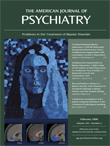Freud’s Requiem: Mourning, Memory, and the Invisible History of a Summer Walk
Matthew von Unwerth, Director of the Brill Library of the New York Psychoanalytic Institute as well as a candidate in psychoanalytic training, has written a beautiful and moving account of the intellectual and philosophic implications of Freud’s brief pre-World War I contact with the poet Rainer Maria Rilke.
Unwerth reconstructs as best as possible the facts of the Freud-Rilke relationship, even though they turn out to be not always fully in accord with what appears in Freud’s 1916 essay “On Transience” (1). The intermediary in bringing Freud and Rilke together was Nietzsche’s friend Lou Andreas-Salomé, which of course adds to the whole significance of the summer encounter Unwerth has set out to explore. Freud’s Requiem succeeds in becoming an elegant series of meditations on death, creativity, mourning, and memory. This book reminds us of the philosophic depth that was implicit in the original psychoanalytic enterprise. Unwerth writes with such a light hand that his subtle way of expressing himself fully matches the unusual gracefulness of Freud and his early followers.
Freud’s “On Transience” remains the inevitable centerpiece of this book and gets reprinted in an appendix, but Unwerth has so artfully approached his subject that he weaves back and forth in that text in an effort to add new imaginative understanding to the central issues that Freud, Rilke, and Andreas-Salomé were trying to contend with.
Many of us would be less interested in psychoanalysis were it not for the clinical implications of Freud’s contribution. I think that Unwerth has succeeded in quietly bringing up the rich cultural background surrounding Freud’s whole therapeutic enterprise. Such philosophic underpinnings to his work are apt to be neglected in our own era’s enthusiasm for the latest technological advances, but it is impossible to abstract Freud’s clinical practices from the whole cultural era of which they were a part, even if it requires an effort on our part to see Freud in the light of Old World thinking. It seems well, on putting down this brilliant new book, to be reminded that every clinical situation is also a moral and ethical challenge. Freud’s Requiem is welcome in helping to ensure that it is possible for psychoanalysis to continue to instruct us for the 21st century.
Dr. Roazen died on Nov. 3, 2005.
1. Freud S: On transience (1916 [1915]), in Complete Psychological Works, standard ed, vol 14. London, Hogarth Press, 1957, pp 303-308Google Scholar



